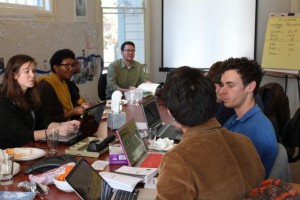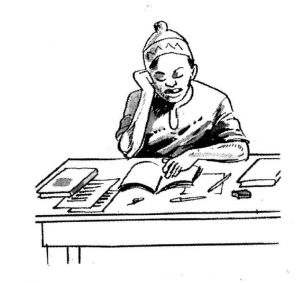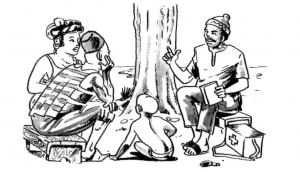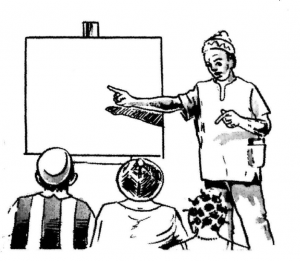We are thrilled to be working with a talented team of language scholars, who until recently, served as instructors for the United States Peace Corps in Mali, teaching new recruits the intricacies of language and culture in Mali.
Salifou Bengaly
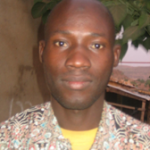
Salifou Bengaly
Mr. Bengaly is known by the nickname “Teacher” because he is a high school teacher and owner of a private elementary school in Kati, a city north of Mali’s capital,Bamako. He was born in Kabarasso in the Sikasso region in 1979 . After high school, he studied languages (English, Arabic, and Bambara) at the University of Bamako from 2000 to 2004. Since that time, he has worked with international NGOs, projects and government departments as a translator through short term contracts. Since 2007, Mr. Bengaly has spent most of his time working for the US Peace Corps in Mali as a language instructor. He speaks, writes, and teaches English, Arabic, French, Bambara, Senoufo and Minianka, and is conversant in Bomu. During his free time, he likes to read and debate current events.
When asked about the importance of this project, he says, “As more Malians are learning to read, the country will have additional health care advisers which will help to improve health conditions in Mali.” He adds, “Because some people think that health workers don’t always tell the truth, they will be aware of the true information because the doors are opened to them (they can read health books now).”
Fatoumata Bouaré
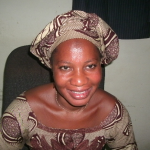
Fatoumata Bouaré
Fatoumata Bouaré, or just “Fatim”, was born in the city of San in Mali’s Segou region. She is a graduate of FLASH (Faculté des Langues des Arts et des Sciences Humaines) at the University of Bamako. Ms. Bouaré has worked with the United States Peace Corps since 2006 as a language and cultural instructor. She says, “The project is important, because in Mali there are many places where there is no health center. The book will help women to learn about health, and know how to better take care of themselves and their family. It will help them to avoid a lot of preventable sicknesses that are common in Mali. There are so many benefits that I cannot finish talking about all of them! I think it will particularly benefit communities, especially if the information is shared with women and girls.”
Abdoulaye Coulibaly
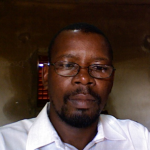
Abdoulaye Coulibaly
Abdoulaye Coulibaly was born in Dogofry in Mali’s Ségou Region. Bambara is his mother tongue. After his graduation from the Ecole Normale Superieure de Bamako (E.N.Sup), he started teaching pupils in primary school. Meanwhile, he also worked as a professional photographer. In July 1996, he joined Peace Corps as a Language and Cross-Culture Facilitator (LCF). Since then, he has taught Bambara, French, and technical language, helped with translation, and facilitated cross-culture training sessions. Abdoulaye thanks everybody involved in this translation project which will be extremely useful and profitable to many Malians. “In Mali, many people do not attend a formal school. There is a strong need for behavior changes and to learn about better health, but this is difficult when people are far from health centers and the roads are bad.” He adds, “All Malians will benefit from this project!”
Diatrou Dembelé
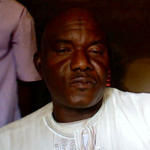
Diatrou Dembelé
Mr. Dembelé was born in the village of Niantanso, between Kita and Manantali near Mali’s western frontier. He is a graduate of the École Normale Supérieure of Bamako, where he studied English and French. After graduation, he taught high school in Côte d’Ivoire and Mali. In 2000, he began working for the Peace Corps, where he has taught French, Bambara, and Malinké to trainees and volunteers. During this time, he helped translate several documents, such as a Life Skills Manual, documents about food security, and others. Mr. Dembelé has also written general and technical instructional manuals for the Malinké language. Concerning the importance of translating Where There Is No Doctor, he had this to say:
“To me the translation of this document will help village health workers, because most of them didn’t go far at school. In addition, all literate persons can read it easily and understood it because it is in their native language. When people can understand something, it is easier for them to implement it. After the book’s translation, a large range of people will be able to read it and to be able to explain it to many, many others. In poor countries, when people can gain this important knowledge for themselves, I think that the rate of mother’s and children’s mortality will decrease a lot.”

